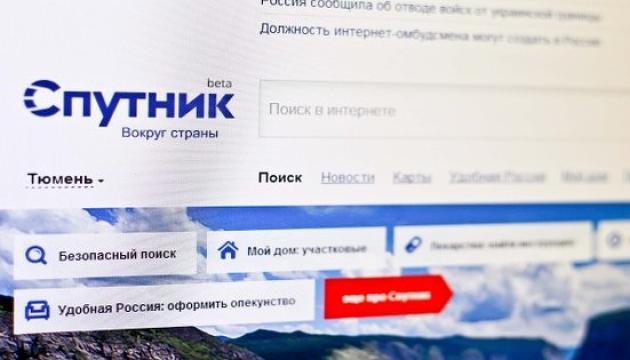Brief Summary:
Invention/Project: Search Engine "Sputnik"
Developer/Company: LLC "Sputnik" (a subsidiary of PJSC "Rostelecom")
Country: Russia
Period: Development from 2013, launch in 2014, effectively shut down as a search engine ~2020
Essence: State "national" search engine and internet portal with a focus on content filtering, safety, and access to government services.
An ambitious attempt to create a state equivalent of commercial search engines, which failed due to low search quality, excessive censorship, lack of users, and negative perception. An example of non-competitiveness when trying to impose "safety" at the expense of relevance and completeness of information.
Creation History
The search engine "Sputnik" was an ambitious project by the Russian state telecommunications company "Rostelecom." Development began in 2013, and the official launch took place in May 2014. The project was positioned as a "national search engine" and a state internet portal, aimed at providing access to official information, government services, and creating a "safe" internet space, especially for social institutions (schools, hospitals) and government bodies.
Operating Principle
"Sputnik" functioned as a standard search engine: it indexed web pages and provided results based on user queries. However, its key distinction was **aggressive content filtering**. The algorithms were configured to:
- Prioritize official information sources (government websites, state media).
- Filter "undesirable" content (extremism, pornography, and, allegedly, opposition resources).
- Integrate search with government services and portals.
Besides search, the portal sputnik.ru offered news, weather, maps, and other services, also focusing on official and "verified" data.
Declared Advantages
- Safety: Protecting users (especially children) from "dangerous" and undesirable content.
- Reliability: Prioritizing official sources was meant to ensure the accuracy and reliability of information.
- Focus on government services: Convenient access to e-government services.
- National sovereignty: Creating a domestic alternative to foreign search giants (Google) and even the dominant Russian one (Yandex).
Why Did It Fail?
- Search Quality: "Sputnik" catastrophically lost to Yandex and Google in relevance, completeness, and indexing speed. Users simply couldn't find the necessary information.
- Excessive Filtering: Aggressive censorship and prioritization of official sites made searching ineffective for most real queries. The search engine missed a lot of legal and useful information.
- Low Popularity: The project never managed to attract any significant audience. Its share of the Russian search market was always statistically negligible (less than 1%). Users saw no reason to switch from the convenient and efficient Yandex or Google.
- Negative Perception: "Sputnik" was perceived not as a useful tool but as a government attempt to control the information space and impose its agenda on users.
- Lack of Competitive Advantages: Besides "filtering," the search engine offered no unique or useful features that could attract users.
Ultimately, in 2020, the project was effectively shut down as a search engine, although the brand and portal could be used by "Rostelecom" for other purposes.
Ahead of Its Time?
Quite the opposite. The idea of a "safe" or "filtered" internet has existed for a long time, but the implementation of "Sputnik" was archaic and clumsy. Instead of offering smart parental control tools or personalized filtering, it tried to create a "sterile" internet for everyone, which contradicted the very nature of the web and the needs of users. It didn't get ahead; it rather ignored the trends of internet development.
Can It Be Revived?
As a publicly accessible search engine, it's practically impossible. The reputation is damaged, the technology is outdated, and the concept of total state filtering in a public search engine is unattractive to users. Perhaps similar technologies could be used to create specialized internal search systems for government bodies or closed networks, but this would no longer be "Sputnik" in its original intent.
WTF Factor
The main WTF factor is the very attempt by a state company to create a "competitor" to Yandex and Google, whose main advantage was that it **searches worse and shows less**. Expecting users to voluntarily choose a search engine that deliberately limits access to information was extremely naive. It's like launching an airline whose main advantage is slower and less comfortable planes.
Plus, the name "Sputnik," referring to the greatest technological triumph of the USSR, used for a project that became synonymous with inefficiency and failure, is ironic in itself.
